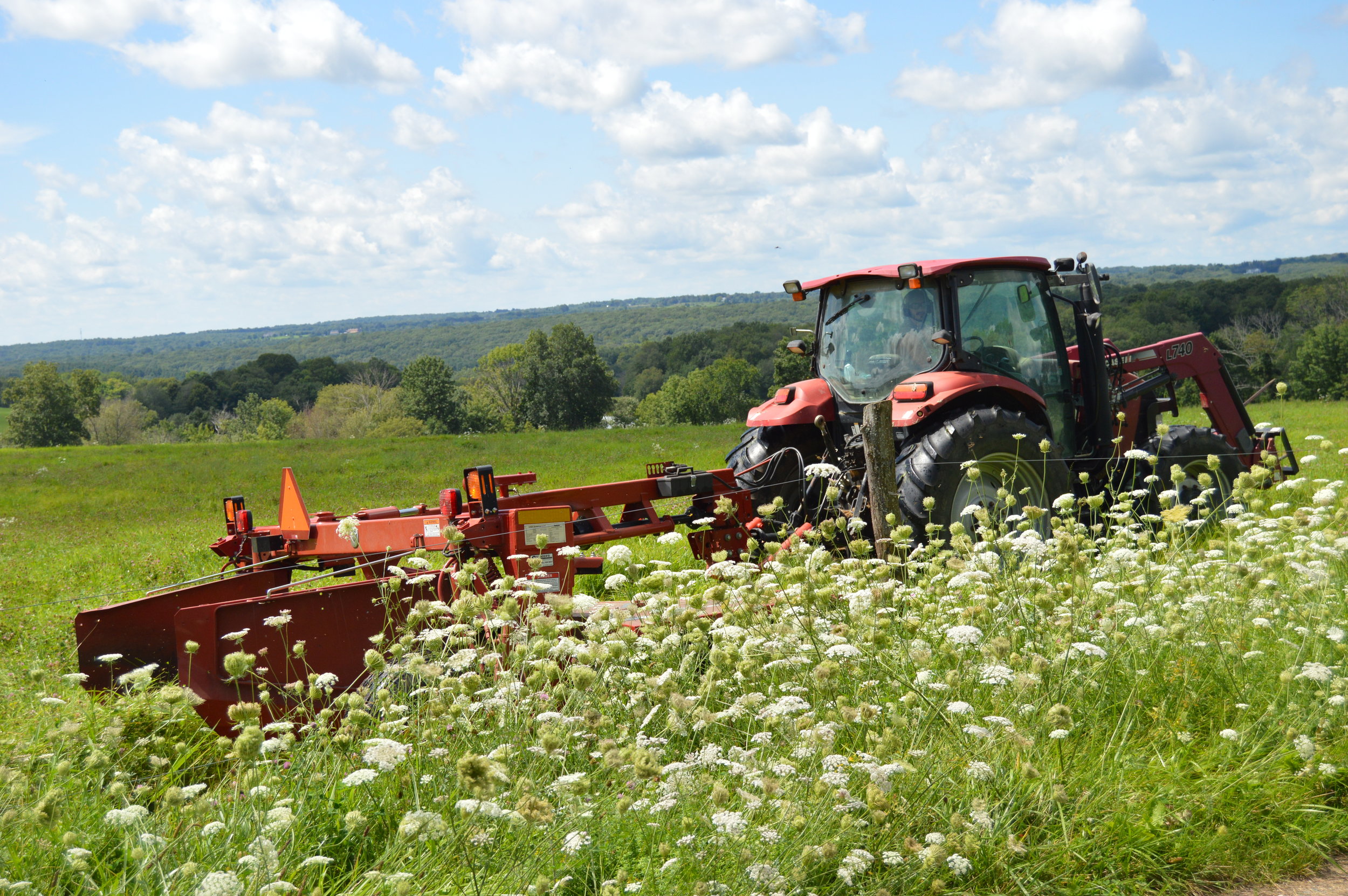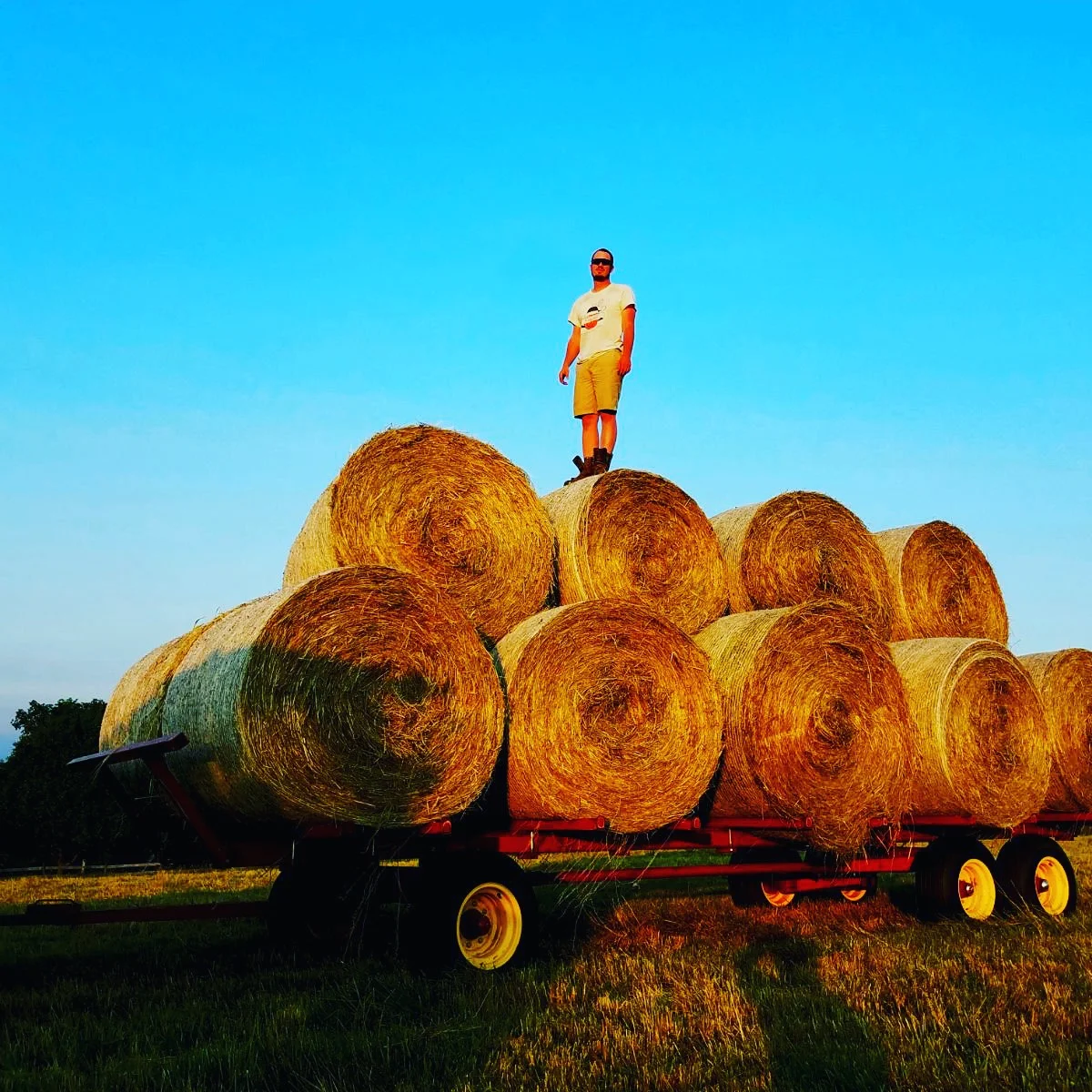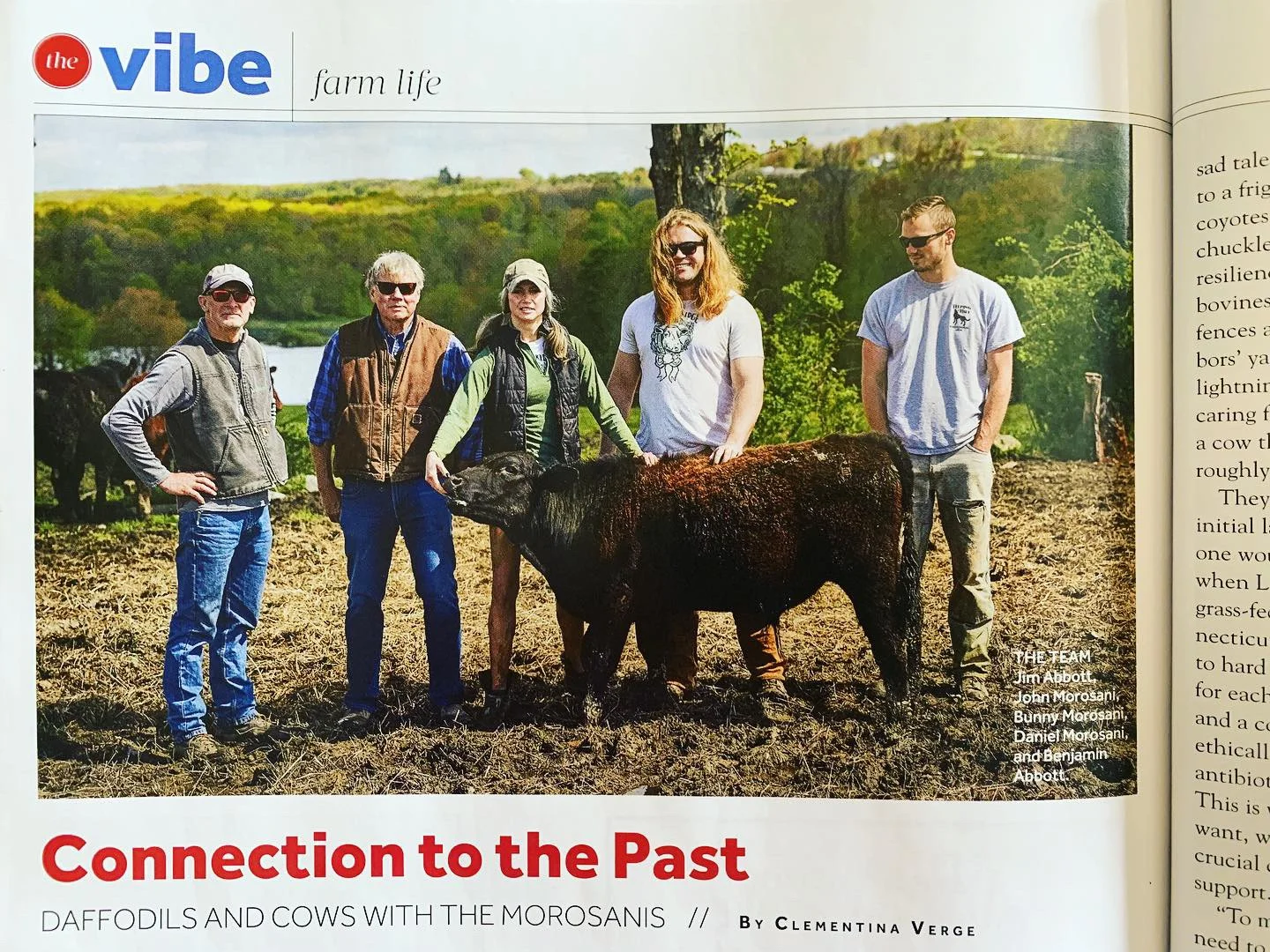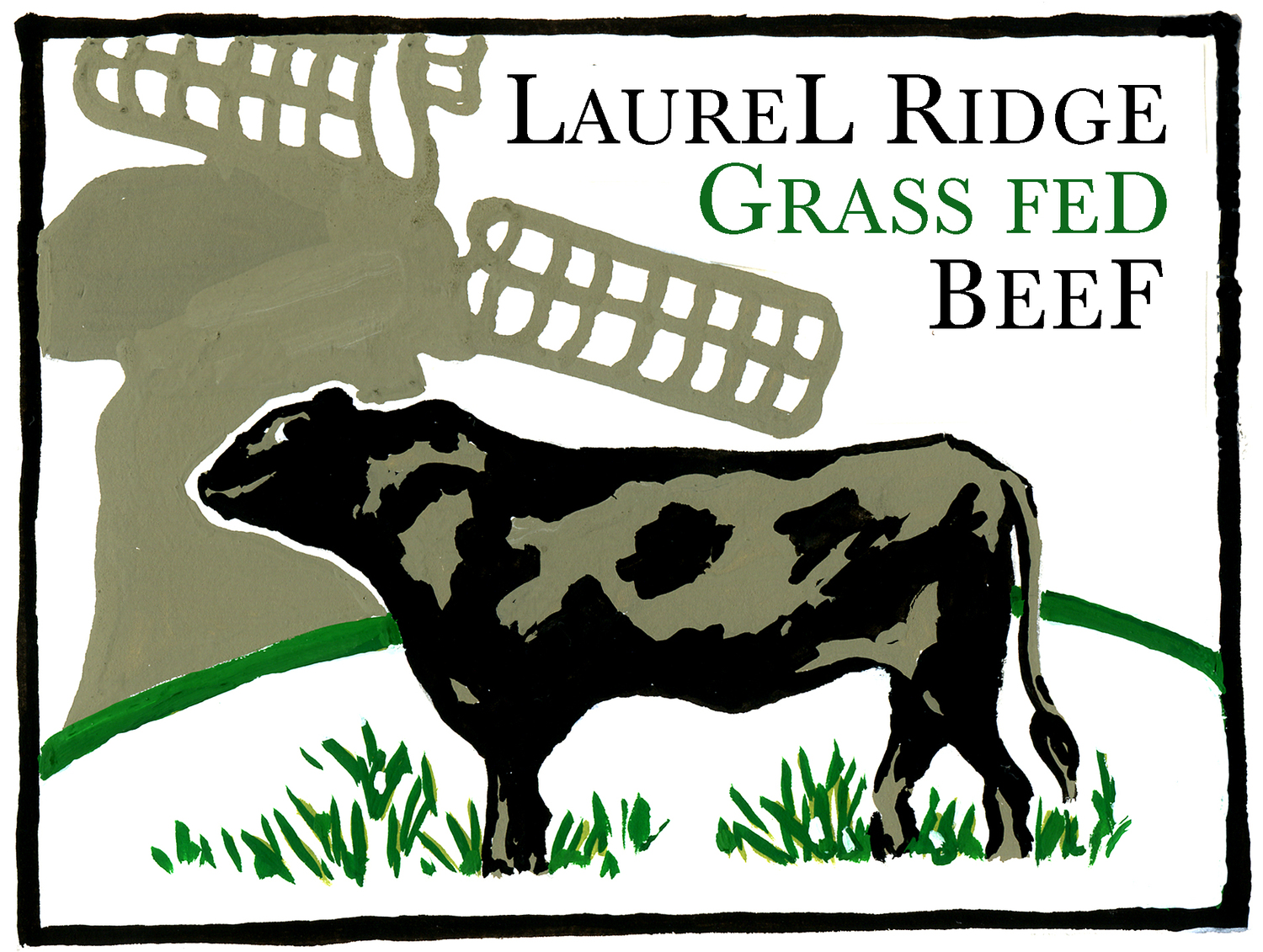




LAUREL RIDGE
We are a family-operated farm in Litchfield, CT
raising 100% grass-fed beef cattle.
LAUREL RIDGE
We are a family-operated farm in Litchfield, CT
raising 100% grass-fed beef cattle.

How We Farm
Our cattle live outside 365 days a year and eat grass grown on our farm. About 7 months a year, they eat grass as it is growing in pasture. In the colder months, they eat hay that we've harvested from our own fields. They drink water from the same well system that provides the water we drink at home. We do not supplement their diet with anything other than a salt lick.
How We Farm
Our cattle live outside 365 days a year and eat grass grown on our farm. About 7 months a year, they eat grass as it is growing in pasture. In the colder months, they eat hay that we've harvested from our own fields. They drink water from the same well system that provides the water we drink at home. We do not supplement their diet with anything other than a salt lick.

FAQ
Your label says Grass Fed.
Do you feed your cows any grain?
No, we feed them no grain whatsoever. Our cows only eat fresh grass or hay from the day that they are weaned from their mother’s milk to the day that they are slaughtered.
What else do your cows eat?
Our cows eat fresh grass during the warmer months and hay harvested from our own fields in the colder months. They drink water from our wells, and they have access to salt licks. That’s it.
Is there any special trick to cooking grass fed beef?
For premium steaks, the answer is no; you cook them the way you would any other steak. One often-overlooked best practice for cooking steak is allowing the meat to warm to room temperature before throwing it on the grill.
For cuts that come from the legs, grass-fed beef will be tougher yet significantly more flavorful than comparable grain-fed meat. Not only are grass-fed cows eating the diet their ruminant digestive systems were intended to process versus fattening grain or corn, they roam the fields to graze on grass so their muscles are more developed than animals fed grain or corn - and often tightly confined on a feedlot. Slow-cooking methods such as smoking, braising, sous vide, and crock pots really bring out the best in grass-fed beef, which contains much more collagen than grain-fed feedlot beef.
DO YOU SELL WHOLESALE?
Yes, most of our turnover is wholesale orders of 1/2 or full cows which are both slaughtered and processed at Plymouth Meats. Unbutchered, hanging steers can also be delivered. Wholesale orders include organ meats and bones (when butchered).
DO YOU SELL To restaurants?Yes, but due to the scale of our operation we are unlikely to be able to support menu items other than ones involving ground beef or short ribs.
We encourage restaurants to contact us for available specials on specific cuts.
IS YOUR BEEF FRESH OR FROZEN?All of our retail inventory is frozen and customers usually receive butchered wholesale orders frozen.
Our cuts are packed in restaurant-grade cryovac packaging that is sous vide-ready. If kept consistently cold-frozen, they will keep for years.
Hanging orders may be delivered fresh.
FAQ
Your label says Grass Fed.
Do you feed your cows any grain?
No, we feed them no grain whatsoever. Our cows only eat fresh grass or hay from the day that they are weaned from their mother’s milk to the day that they are slaughtered.
What else do your cows eat?
Our cows eat fresh grass during the warmer months and hay harvested from our own fields in the colder months. They drink water from our wells, and they have access to salt licks. That’s it.
Is there any special trick to cooking grass fed beef?
For premium steaks, the answer is no; you cook them the way you would any other steak. One often-overlooked best practice for cooking steak is allowing the meat to warm to room temperature before throwing it on the grill.
For cuts that come from the legs, grass-fed beef will be tougher yet significantly more flavorful than comparable grain-fed meat. Not only are grass-fed cows eating the diet their ruminant digestive systems were intended to process versus fattening grain or corn, they roam the fields to graze on grass so their muscles are more developed than animals fed grain or corn - and often tightly confined on a feedlot. Slow-cooking methods such as smoking, braising, sous vide, and crock pots really bring out the best in grass-fed beef, which contains much more collagen than grain-fed feedlot beef.
DO YOU SELL WHOLESALE?
Yes, most of our turnover is wholesale orders of 1/2 or full cows which are both slaughtered and processed at Plymouth Meats. Unbutchered, hanging steers can also be delivered. Wholesale orders include organ meats and bones (when butchered).
DO YOU SELL To restaurants?Yes, but due to the scale of our operation we are unlikely to be able to support menu items other than ones involving ground beef or short ribs.
We encourage restaurants to contact us for available specials on specific cuts.
IS YOUR BEEF FRESH OR FROZEN?All of our retail inventory is frozen and customers usually receive butchered wholesale orders frozen.
Our cuts are packed in restaurant-grade cryovac packaging that is sous vide-ready. If kept consistently cold-frozen, they will keep for years.
Hanging orders may be delivered fresh.

Contact Us
Contact Us

Team
Team

Press
Coming soon!
Press
Coming soon!








